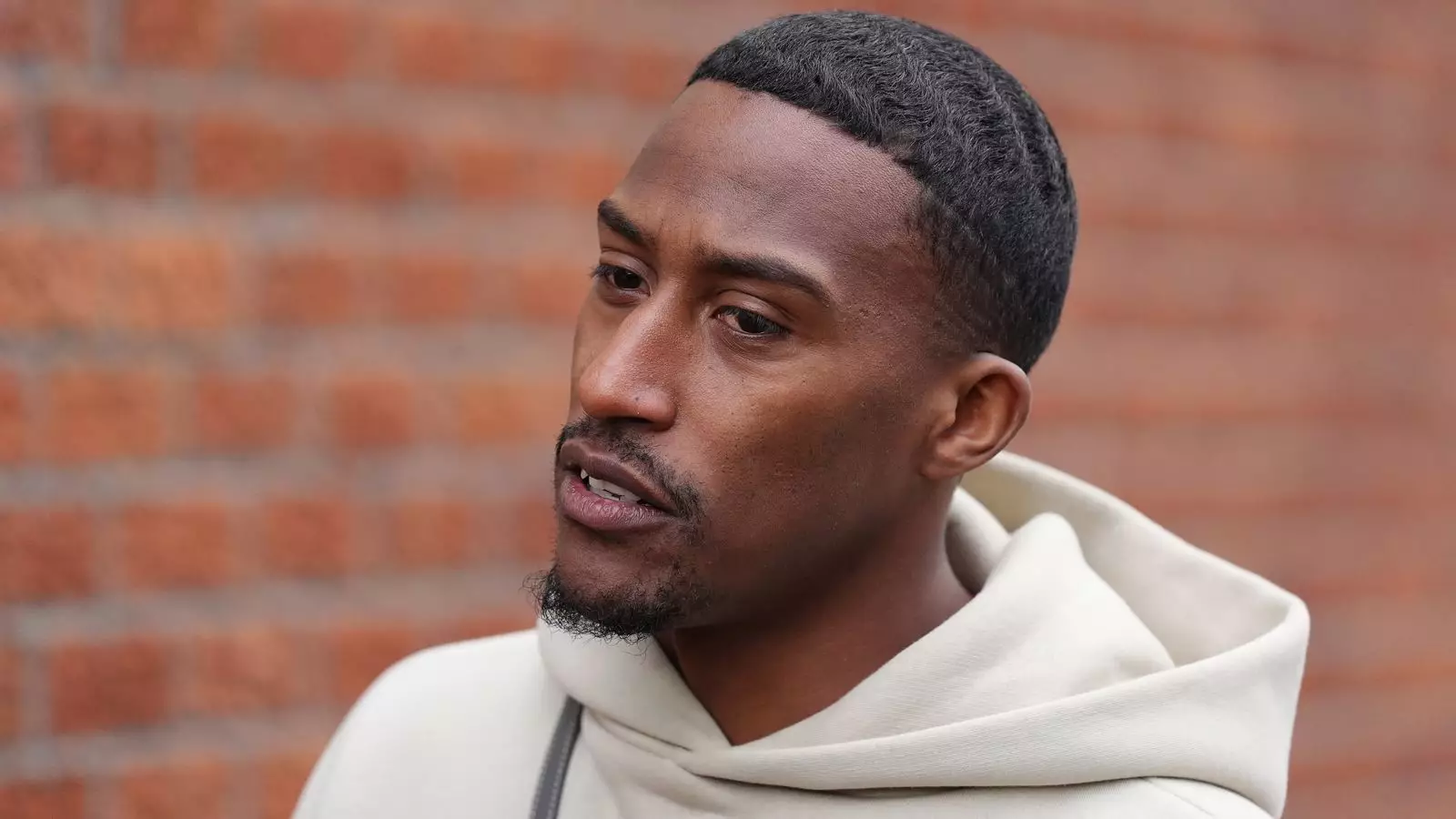In a move that has rattled the football community and beyond, The Football Association (FA) has suspended a recently launched online cooking series featuring British YouTuber and rapper Yung Filly. This decision comes on the heels of significant controversy after Yung Filly, whose real name is Andres Felipe Valencia Barrientos, was arrested in Australia on rape allegations. The allegations have cast a long shadow on a campaign aimed at promoting healthy eating among teenagers, raising questions about the intersection of celebrity culture, social responsibility, and public trust.
The initiative, named “The Greater Game,” was designed to engage children aged 12 to 16 by encouraging them to explore healthy cooking alternatives. A collaborative effort with England team sponsor M&S Food, the campaign featured notable England footballers such as Bukayo Saka, Ezri Konsa, and Jarrod Bowen, all chosen to relate positively with younger audiences. Just a day after the campaign’s announcement, however, the FA’s decision to pull the series underscores how quickly public sentiment can shift in the face of scandal.
Yung Filly was apprehended while touring Australia, with allegations surfacing that he assaulted a woman in her twenties in a hotel room after performing at a venue in Perth. Following his arrest, he faced multiple serious charges, including sexual penetration without consent and assault occasioning bodily harm. The gravity of these accusations has left both fans and industry figures questioning the ethics of aligning with a celebrity facing such serious legal troubles.
During his court appearance, the conditions of his bail included a prohibition against contacting the alleged victim and restrictions on social media interactions regarding the case. The ongoing nature of the investigation has led authorities to urge anyone with relevant information to come forward, illustrating the wider implications of this case for those affected and society at large.
This incident serves as a stark reminder for brands partnering with public figures. The use of Yung Filly, who has amassed a substantial following—3.2 million on Instagram and the same on TikTok—highlighted a trend where influencer culture merges with corporate branding. Haven’t these brands a responsibility to vet their ambassadors more rigorously? M&S Food’s involvement in a campaign promoting health and positive behaviors creates a disconnect when the face of that campaign is embroiled in such serious legal issues.
Despite M&S having no direct endorsement deal with Yung Filly, the backlash from this incident may reverberate through their reputation. Consumers today demand accountability, and brands are not insulated from the impacts of their associations. They may soon find themselves needing to reevaluate how they align themselves with public figures, considering not only the potential for positive association but also the risks involved.
The FA’s rapid response to withdraw from the campaign illustrates a growing recognition within sporting organizations of their role in upholding ethical standards. The relationships between sport, youth engagement, and personal integrity have never been more scrutinized. Amid ongoing conversations about the influence of media personalities on the younger generation, the FA faces implications beyond just the immediate fallout of this cooking series.
In light of these events, the FA could consider taking a more proactive educational stance on the principles of consent and respect. By utilizing their platform to address these important issues, they could not only rebuild trust but also contribute meaningfully to the education of young people who look up to their athletes.
As this story develops, all eyes will remain on Yung Filly and the outcome of his legal proceedings. Moreover, the ripple effects of this controversy remind us how intertwined our media, sports, and personal ethics have become in the modern era.
Moving forward, both the FA and brands like M&S will have to navigate the complexities of public relations with increased caution and sensitivity. The need to promote positive messages must be matched equally with the integrity of their partnerships. Ultimately, the fallout from this situation may not only affect the individuals involved but could reshape how we view celebrity endorsements in the realms of health, sports, and beyond.


Leave a Reply